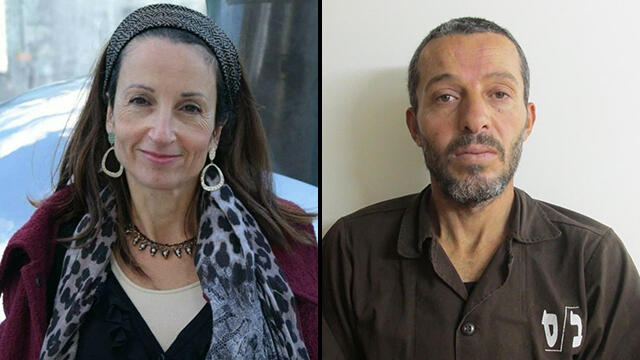The High Court of Justice on Wednesday approved the partial demolition of the West Bank home of the Palestinian who admitted murdering 52-year-old Esther Horgen in a December 2020 terror attack.
The beaten body of Horgen, a mother of six from the settlement of Tal Menashe, was found a day after she went missing during a jog in the woods near her home.
3 View gallery


Muhammad Mruh Kabha has admitted killing Esther Horgen in December
(Photos: Horgen family, Shin Bet)
Muhammad Mruh Kabha, 40, from the West Bank village of Tura al-Gharbiya near Jenin, was arrested four days later. The Shin Bet security service said he admitted killing Horgen and later reenacted her murder at the scene.
Kabha told the Shin Bet that he had snuck into Israeli territory through an opening in the security fence, with the intent to carry out a terrorist attack against Israelis.
He also said he killed the mother of six by smashing her head with a rock.
Kabha's family had petitioned the court against the plan to demolish the upper two floors of the three-story home, claiming that the confessed terrorist's wife and three children lived on the second floor.
The family said that they did not know of his plans to carry out a terror attack and could not have prevented him from doing so and argued that the demolition would be an act of revenge and punishment therefore illegal.
Furthermore, the family told the court, collective punishment was a violation of international law and even of Jewish law.
They also claimed that home demolitions were not a deterrent but instead actually fostered resentment that led to further attacks.
The three-judge panel, however, ruled two to one that there was no grounds to intervene in the IDF plan to partially raze the home.
"The demolition of terrorist homes is a sensitive issue," wrote Judge Yitzhak Amit as he rejected the family's petition along with Judge Daphne Barak-Erez.
"Demolishing a terrorist's house is not a means of punishment, and there is no revenge involved as a response to the attack. The demolition of a terrorist's house is used solely as a deterrent and not as a means of punishment," Amit wrote.
Writing the minority opposition to the decision, Judge Anat Baron said she believed that the second floor of the house, where the wife and three children lived, should not be demolished, but only the third floor that was used by him.



